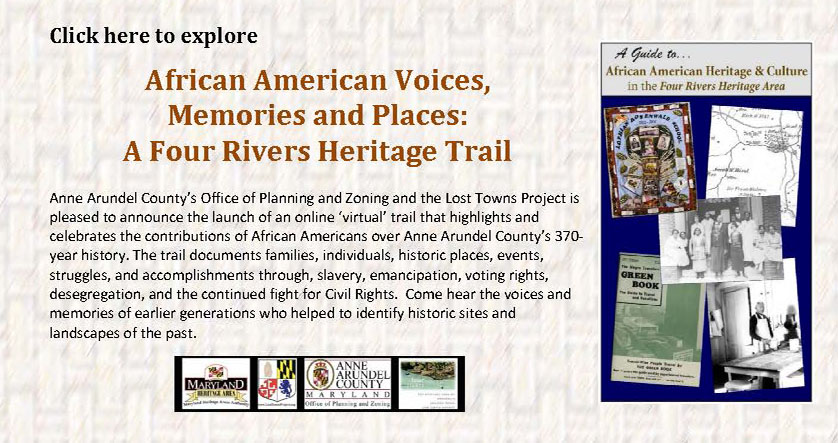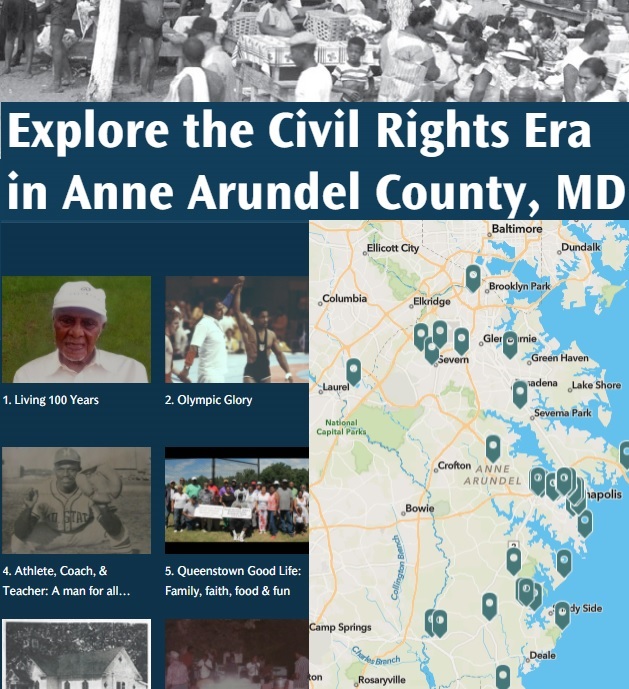The Lost Towns Project, in collaboration with Anne Arundel County’s Office of Planning and Zoning, has recently completed two online resources on African American history in Anne Arundel County, Maryland. Check them out by clicking on the pictures below.
African American Voices, Memories and Places: A Four Rivers Heritage Trail
This virtual trail and its companion guide highlight publicly accessible historic sites that provide a tangible place to visit, explore, and contemplate important African American individuals, families, people, historic places, events, struggles, and accomplishments. It also included many privately-owned sites, and in far too many cases, sites physically lost to time. This interactive tour acknowledges and celebrates contributions by African-Americans over the County’s 370-year history; those who tilled the soil on farms that made Anne Arundel County prosper prior to Emancipation, those who harvested, processed and shipped the Bay’s seafood to feed an expanding Country, and those who physically built the grand colonial houses for wealthy landowners, many of whom were enslaved. We honor those families and individuals that came together in good times and bad, to start a church and a congregation, to found a school, to build a community, and to create a legacy.
Please note that many of the tour stops are privately owned and not accessible for visitation.
Thank you for respecting the privacy of these properties.
Sites open to the public are clearly marked.
Explore the Civil Rights Era in Anne Arundel County, Maryland
Relying upon more than 50 oral histories, this virtual tour is a rare opportunity to hear about local history through the eyes, voices, and memories of those who experienced it first-hand. Highlighting local places, residents, and their stories, the project offers accounts of everyday activities during a time of segregation. It documents spaces of leisure and recreation, where people of color could gather and enjoy solidarity and empowerment; places like stores, ballfields, beaches, juke joints, movie theaters, beauty salons, and barber shops. A team of historians, led by Lyndra Marshall (née Pratt) and Dr. John Kille worked with citizens who generously shared their memories of what life was like during segregation, and uncovered compelling stories of injustice, resistance, and sacrifice, as well as perseverance and triumph. The full interviews and transcriptions are accessible by request from the Maryland State Archives.


